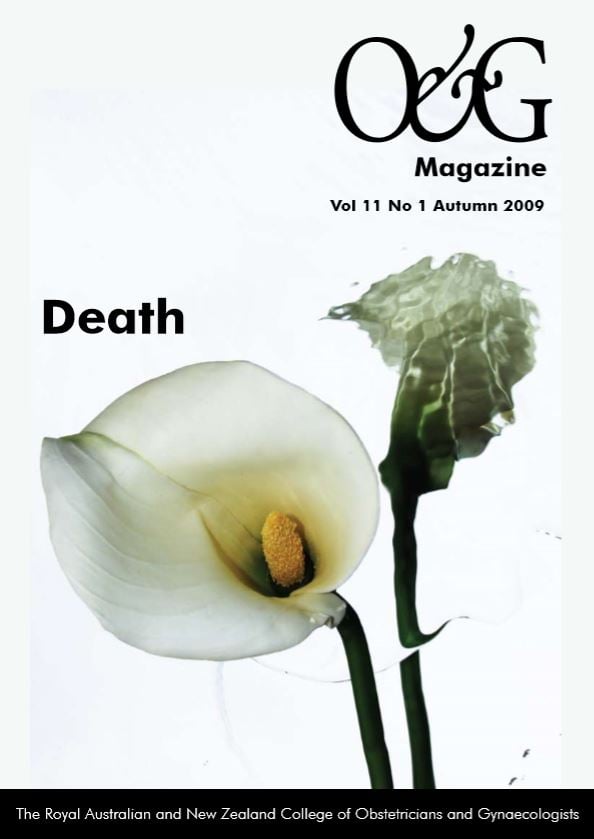When a medical practitioner retires or relocates, it often takes some time to prepare for closure or sale of their medical practice. It is considerably more difficult where the unfortunate situation of a sudden death occurs, especially in a solo practice.
Regardless of the structure of your O and G practice, it is essential to understand some of the requirements that may come into play in an emergency situation, such as the death of a practitioner.
Wills and the estate
First and foremost, the legislative framework that takes effect upon the death of a person in relation to their estate provides the grounds for which all other aspects need to be considered. Initially, the practice, as a business owned by the deceased practitioner, passes to the estate of the practitioner (if a will does not state otherwise). Similarly, in a partnership or associateship arrangement, the ownership of that part of the business will pass along in the same manner (unless otherwise provided for within the applicable agreement).
In either of the above cases, the important first step is for the estate to consider the future of the practice or their part of the practice. Generally, a practice in this situation will be sold (though it may simply be closed instead), either as a whole entity where the deceased practitioner was the sole owner and also maintains ownership or contracts for the premises on which the practice is located, or bought out by other partners or associates. Such a decision necessitates the estate to consider a number of factors, including any known wishes of the deceased practitioner when making such a decision.
Informing the patients
Patients should be advised by either the estate or the incoming/existing practitioners as soon as practicable after the above decision has been made. It is important that this notification not only informs the patient of the future of the practice, but also the proposed handling of their medical records (discussed in detail below). This notification is ideally by direct contact (phone, email or letter), whatever is appropriate for your practice, but can be supplemented with advertisements in local newspapers or professional newsletters.
It is also prudent to contact all regular referring general practitioners so that they can be aware of the future situation for new patients. Notifications should also be made as soon as practicable to the Medical Board in your local State; Medicare Australia; the deceased practitioner’s medical defence organisation; and any other professional or membership bodies such as RANZCOG.
There is no obligation on the estate or practice to refer the patients to another treating O and G where there are no continuing doctors in the practice. In fact, it would be advisable for the practice to avoid such referrals. Instead, practices can provide details of nearby O and G practices and provide patients with instructions to revisit their general practitioner for a new referral.
Handling of medical records
The ownership of the medical records retained by the practice will generally pass to the estate. However, this becomes complex where various state legislative provisions provide that only a medical practitioner shall retain records. There is no available case law
that provides clarification on this situation, however, conservatively speaking, it would be ideal for the estate to maintain the records for the duration of time required by their state legislation.
This can be a daunting proposal, as it generally involves the executors of the estate, often a family member, looking at storage, retention and potential recollection of thousands of medical records for up to 25 years. However, the importance of the retention is demonstrated in medical negligence cases, which can be run for many years after the birth. Without the medical record or medical practitioner, the defence of these cases would be near impossible.
Some alternate options that are available in relation to the medical record are for the new practitioner or existing practice structure to take over responsibility for the files. It may also be possible to provide all patients with their files or to pass these on to a new practitioner of the patient’s choice. However, this also comes with a risk as stipulated above in relation to defence of malpractice cases. Without the medical record, the defence of these cases would be near impossible.
The estate may also consider use of a records repository where patient files are maintained and retrievable through an external facility, however, this will attract fees. With electronic records and scanning capabilities, records may also be maintained on disk or in data vaults (online secure data storage points) which can minimise costs, space and retrieval time.
Practice staff and equipment
If it is determined that a practice is not going to continue as a medical business after the death of a practitioner, consideration must also be given to staff and equipment. The responsibility for these considerations again falls to the estate.
In terms of staffing, ideally all staff will be informed of the practice closure as soon as possible. Where the minimum redundancy notice provisions cannot be adhered to, the staff are paid for this period in lieu of working. Additionally, all entitlements for leave that are outstanding must be paid out on termination. If the practice is being sold as an entire entity, including on-selling the staff, consideration must be given to their leave entitlements at the time of exchange, as these will transfer with the staff to be the responsibility of the new employer.
Medical equipment can be sold via a range of options including advertisement in medical magazines and journals or, in some instances, can be donated to disadvantaged countries.
Disposal of medications and prescription pads
Any medications or prescription pads that are left in the practice and cannot be used by another practitioner should be disposed of in accordance with local health department guidelines.
We strongly advise that any executor who is faced with executing an estate as the result of the death of a practitioner seek legal and/or other expert advice to ensure all legislative duties outlined above are complied with.






Leave a Reply